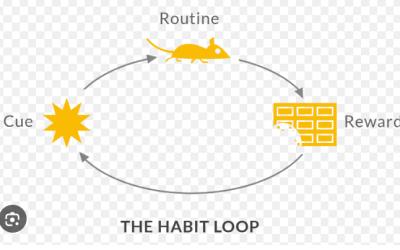Question: What makes people happy AND productive at work? Answer. Workplace friendships and social connections.
We are social beings
The happy and healthy human is a social creature. We are hard-wired to connect. Data from multiple studies of mammals, from humans to rodents, shows that we are profoundly affected by our social environment. The quality of our lives is largely determined by the quality of the relationships we have with those around us.

Yet we are evolving quickly to become a world full of people cocooned in their own micro-worlds, shut off from one another by technology. Technology has made us hyper-connected, yet also disconnected from one another in the ways that matter.
Consider for a moment Maslow’s Hierarchy of Needs, proposed in 1943 as an observational theory on human motivation. He concluded that in order to self-actualize and reach our full potential as human beings, we first needed to have our basic and psychological needs met. Our basic needs at work include clean water and air, warmth, shelter and security. Our psychological needs are for friendship and connection, and they promote positive emotions of self-esteem and belonging.
How many modern workplaces are truly seeking to meet these psychological needs in authentic and encouraging ways? Yet without them, how can we reach our potential and do our best work?
Win Win
Our workplace friendships and social connections make us more productive. Engaged employees- those who are enthusiastic, energetic, positive – lead to better business outcomes.
Henry Ford said ‘’My best friend is the one who brings out the best in me.’’ Could this be the key?

Gallup, the global performance consultancy agency has shown a clear link between work friendships and work effort. People who have a best friend at work are:
- 43% more likely to have received praise or recognition for their work in the last 7 days
- 21% more likely to say they can do their best work each day
- Have significantly higher levels of stress management, despite having the same amount of stress
Disconnect
Here’s the reality : For the majority of people, the workplace isn’t a happy, connected, engaged place. Only 33% of people globally are engaged in their work. Which means the majority are either disengaged, and so apathetic about their work, or actively disengaged, which can be quite toxic and disruptive.
We live today in a hyper-connected world. We have never before been more easily accessible to one another, and yet paradoxically we have also never before been more disconnected from one another. We have replaced much of our F2F communication in the workplace with digital means of communication, and assume they fulfill the same role. We are connecting all day long in the workplace via devices, but they are not fulfilling our psychological need for social connection and belonging.

Dr. Sherry Turkle is a professor of technology at MIT, and she has spent the last 20 years researching the impact of new technology and digital devices on our interactions and relationships with one another. She concludes that :
‘’technology can make us forget what we know about life, and one of the things we are forgetting right now is the importance of conversation and of truly being with each other in ways that matter.’’
Digital overload
There is an over-reliance on digital communication in the modern workplace. The story we tell ourselves to justify this is that it makes us more efficient. Yes it can, in certain contexts, like when we have a remote/ global element to our workforce and so zoom and skype conference calling is a practical way to conduct meetings. Or when we want to impart some information company wide, we might use our intranet or Slack to disseminate the information widely and quickly.
But email is used so widely, amongst people who have the capacity to pick up the phone, walk over to the other person, knock on a door. And it is used to communicate beyond the dissemination of information, to have conversations and make decisions and seek input that should really be done F2F, or over the phone, or via conference call.
With digital we are adding new layers of complexity to how we communicate : I read tone here, I will respond with suitable counter tone. Miscommunication, misinterpretation, misunderstanding, mistakes, messy communications leading to fracturing in relationships, to economic consequences.
The virtuous cycle of conversation
Conversations lead to connections that develop over time and trust into positive relationships that fulfil our need to belong and be connected that in turn positively impacts on our self esteem and gives us the self belief and confidence to do our best and reach our potential. People who are operating at their full potential are going to be the most actively engaged in their work.

Why Conversation is the key
The more connected we feel to those around us the less lonely we feel. The simple step of having small daily conversations throughout our working day can have a hugely positive impact on loneliness. But we need to be in a workplace where that is encouraged.
Prioritising daily conversation in the workplace + fostering a workplace culture where social interaction is seen as critical and valuable = key to a happy and productive workplace.
If people are more productive when they are socially connected, then time spent encouraging that social interaction needs to be seen as valuable time well spent. And it needs to come from the top, and be modelled by the top. That is crucial. People who are happy are more engaged. Fostering a social workplace is critical. Having close relationships at work in which people care and trust one another enables them to work better, resulting in better business outcomes.
Practical ideas to promote conversation in the workplace
- Use technology tools geared towards conversation
- Ban lunch at desks
- Make the benches in the canteen longer
- Have a rule on email
- Encourage clubs/ orgs.
Each workplace is of course unique. For more information on how to instill a culture of conversation and social interaction in your workplace, do get in touch for a chat. At SocialBe, we are passionate about putting the human back into human interaction.



